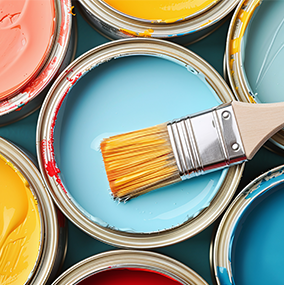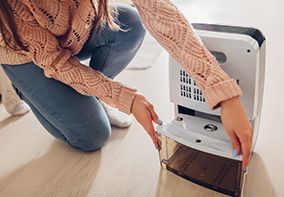Welcome to 2025! I hope the year is unfolding positively so far for you.
Whatever your plans are for the year ahead, chances are at some point you will need to speak with an expert for advice, be that a doctor, lawyer, plumber, or real estate agent.
If you have questions regarding your property or the market, please reach out to me. I'll be happy to provide you with the latest real estate-related information, such as what buyers are looking for, how to increase your home's value, or the current market value of your property.
As the saying goes, "knowledge is power," so the more informed you are through credible information, the better decision-making can be.
If you know of a friend or neighbour who has questions about their property and need an expert in real estate, I hope you will feel comfortable passing along my name. I'd appreciate your support.

-Don’t tell everyone about your vacation or post about it on social media – the fewer people who know your home is empty, the safer.
-If you are in a house, ask a neighbour to keep an eye on things, bring in your mail and help with any outdoor maintenance needed while you are away. Provide them with a key and your contact information in case they need to reach you due to an emergency.
-Consider keeping a couple of lights on, setting lights up on timers if you have them, or controlling them remotely with your smartphone.
-Unplug unneeded devices to save power and to prevent an electrical fire.
-Keep your thermostat at 15 °C (59°F in the US) to avoid pipes bursting in cold climates.
-Turn off the water supply to prevent water damage.
-If you have smart technology linked to your phone, you can check on your home with security cameras, turn on and off the TV, and open and close blinds, to make your home appear occupied.
With a little pre-planning, you can go away with greater peace of mind so you can relax and enjoy your vacation.

Matte or Flat – With no reflective properties, this is a good option for touch-ups since they are less visible. Keep in mind it’s less durable, and will be damaged if treated with a cleaner, so it’s best used in low-traffic areas.
Eggshell – This sheen is soft like an eggshell, hence the name. It’s good for medium-traffic areas like entryways, hallways, and living rooms.
Satin – A popular choice for its increased gloss and better durability over lower sheens like eggshell, making it easier to clean and good for busy areas.
High-Gloss or Semi-Gloss – These sheens are shiny, sleek, and very durable with high moisture resistance, making them good for high-traffic and humid areas like kitchens and bathrooms. However, their shine shows imperfections the most. For maximum shine and durability, high-gloss is the best choice.
If you are torn between what sheen to choose, you can always mix them to get a little of both.

Pat dry damp surfaces like bathroom tiles after a shower. Wash your shower curtains regularly. Spores can develop within 24 hours in wet conditions.
Run the exhaust fan in your bathroom after showering and in your kitchen when cooking.
Heat your home sufficiently in the winter to help avoid condensation. If you notice condensation around your windows wipe it dry, and stop or severely limit the use of a humidifier.
Cover your pots when cooking whenever possible.
Seal any gaps around windows, doors, and electrical outlets.
Immediately fix any leaky pipes or faucets.
Use a dehumidifier. For convenience, get one that automatically turns on when the humidity exceeds 60 percent.
Open the windows to circulate the air when you’re not running your furnace or AC.
Set a reminder on your phone when doing laundry, so you don’t leave wet clothes in the washing machine or dryer.
When renovating, use mould-resistant products that can be found in materials like drywall and insulation.
When it comes to mould, prevention is far easier than removing it, so consider it worth the time and thought.
Whatever your plans are for the year ahead, chances are at some point you will need to speak with an expert for advice, be that a doctor, lawyer, plumber, or real estate agent.
If you have questions regarding your property or the market, please reach out to me. I'll be happy to provide you with the latest real estate-related information, such as what buyers are looking for, how to increase your home's value, or the current market value of your property.
As the saying goes, "knowledge is power," so the more informed you are through credible information, the better decision-making can be.
If you know of a friend or neighbour who has questions about their property and need an expert in real estate, I hope you will feel comfortable passing along my name. I'd appreciate your support.
Pre-Vacay Home Prep

If you are planning a vacation this winter, in order to make sure things go smoothly, it’s wise to prepare your home before you go away. Here is a helpful pre-vacation home checklist:
-Don’t tell everyone about your vacation or post about it on social media – the fewer people who know your home is empty, the safer.
-If you are in a house, ask a neighbour to keep an eye on things, bring in your mail and help with any outdoor maintenance needed while you are away. Provide them with a key and your contact information in case they need to reach you due to an emergency.
-Consider keeping a couple of lights on, setting lights up on timers if you have them, or controlling them remotely with your smartphone.
-Unplug unneeded devices to save power and to prevent an electrical fire.
-Keep your thermostat at 15 °C (59°F in the US) to avoid pipes bursting in cold climates.
-Turn off the water supply to prevent water damage.
-If you have smart technology linked to your phone, you can check on your home with security cameras, turn on and off the TV, and open and close blinds, to make your home appear occupied.
With a little pre-planning, you can go away with greater peace of mind so you can relax and enjoy your vacation.
Interior Painting 101: Making Sense of Finishes

If you are thinking of sprucing up your property with a fresh coat of paint, the first thing that comes to mind is the colour. But to accomplish the look you are trying to achieve, an equal amount of thought should go into the type of paint sheen you will use, which is how much light reflects off the paint. For a rundown of the most common sheens read on.
Matte or Flat – With no reflective properties, this is a good option for touch-ups since they are less visible. Keep in mind it’s less durable, and will be damaged if treated with a cleaner, so it’s best used in low-traffic areas.
Eggshell – This sheen is soft like an eggshell, hence the name. It’s good for medium-traffic areas like entryways, hallways, and living rooms.
Satin – A popular choice for its increased gloss and better durability over lower sheens like eggshell, making it easier to clean and good for busy areas.
High-Gloss or Semi-Gloss – These sheens are shiny, sleek, and very durable with high moisture resistance, making them good for high-traffic and humid areas like kitchens and bathrooms. However, their shine shows imperfections the most. For maximum shine and durability, high-gloss is the best choice.
If you are torn between what sheen to choose, you can always mix them to get a little of both.
Preventing an Unwanted Houseguest: Mould

Mould loves moisture, thus controlling moisture in your home is the best way to stave it off. Left unchecked, mould can cause allergies and asthma attacks, so what should you do to prevent it from developing in the first place?
Run the exhaust fan in your bathroom after showering and in your kitchen when cooking.
Heat your home sufficiently in the winter to help avoid condensation. If you notice condensation around your windows wipe it dry, and stop or severely limit the use of a humidifier.
Cover your pots when cooking whenever possible.
Seal any gaps around windows, doors, and electrical outlets.
Immediately fix any leaky pipes or faucets.
Use a dehumidifier. For convenience, get one that automatically turns on when the humidity exceeds 60 percent.
Open the windows to circulate the air when you’re not running your furnace or AC.
Set a reminder on your phone when doing laundry, so you don’t leave wet clothes in the washing machine or dryer.
When renovating, use mould-resistant products that can be found in materials like drywall and insulation.
When it comes to mould, prevention is far easier than removing it, so consider it worth the time and thought.